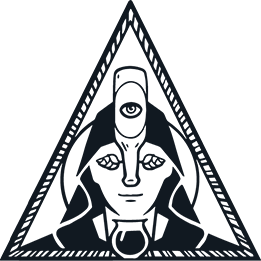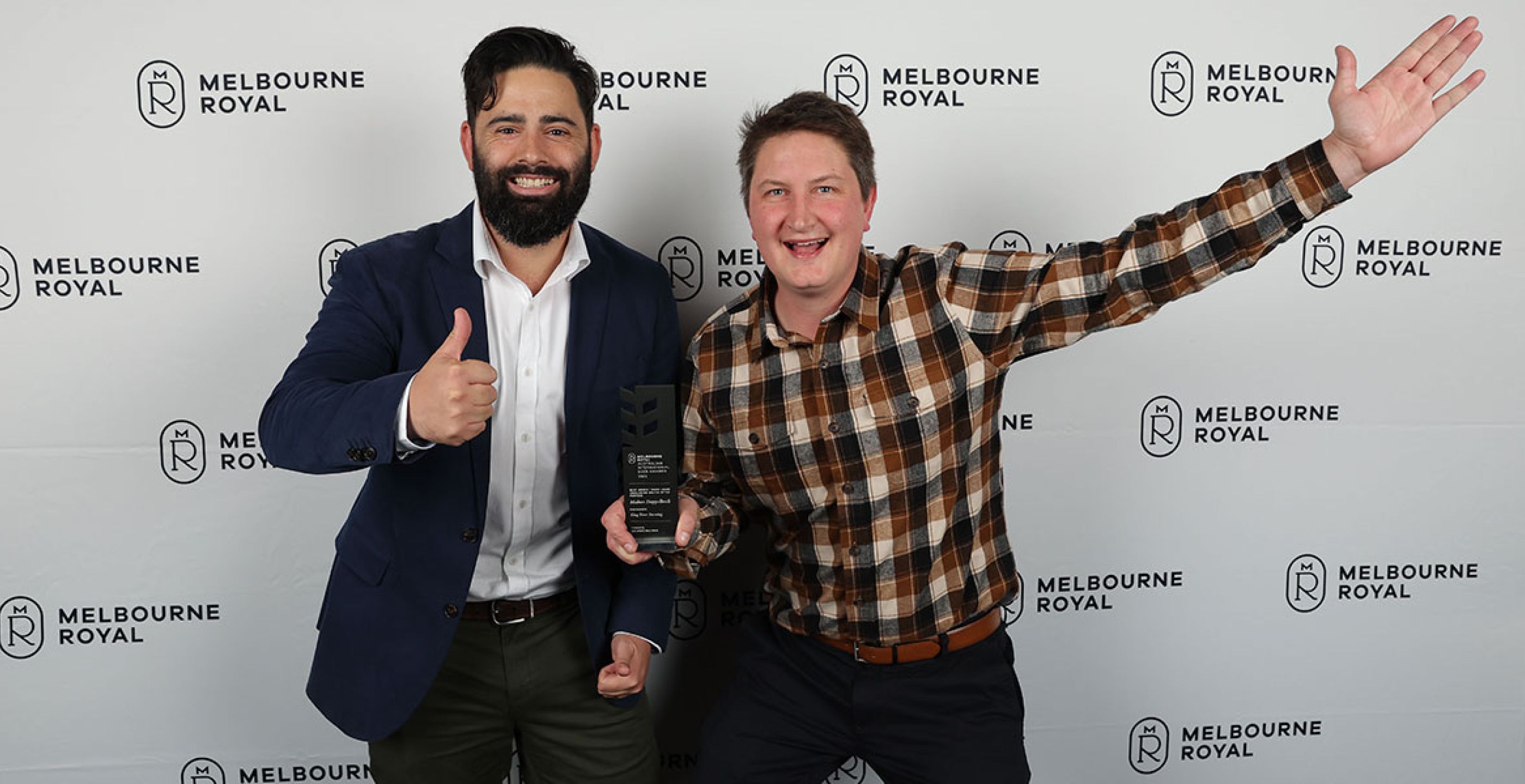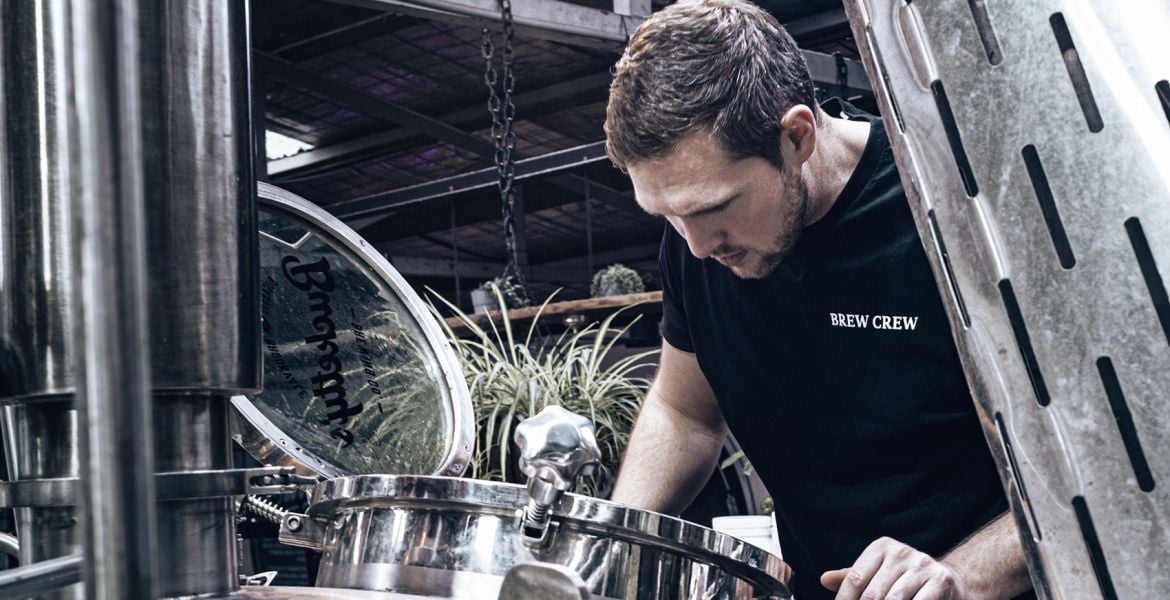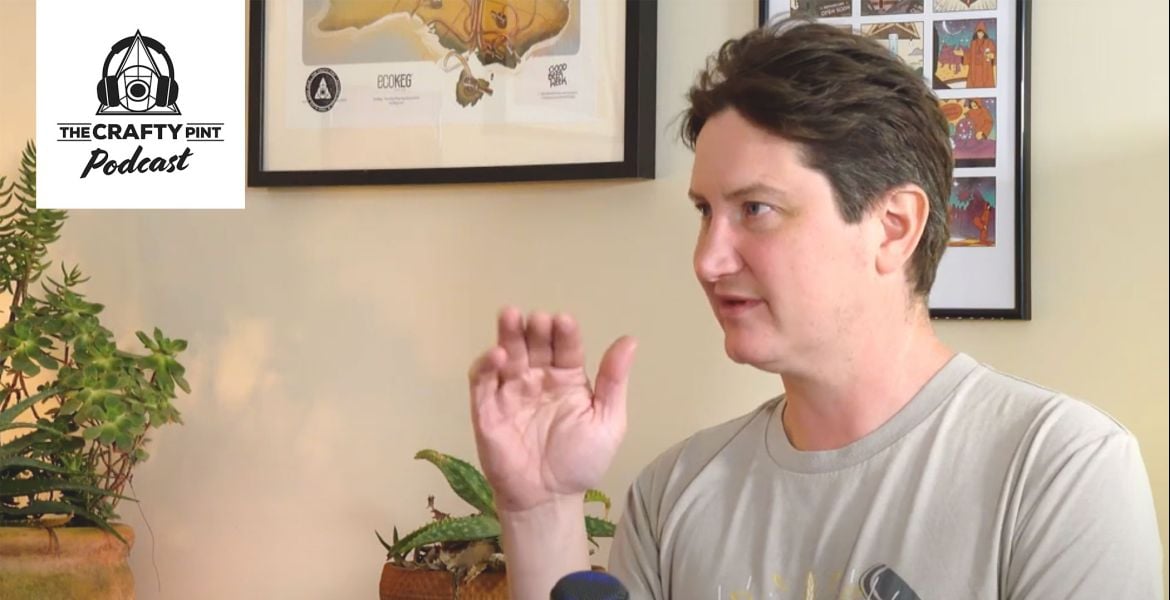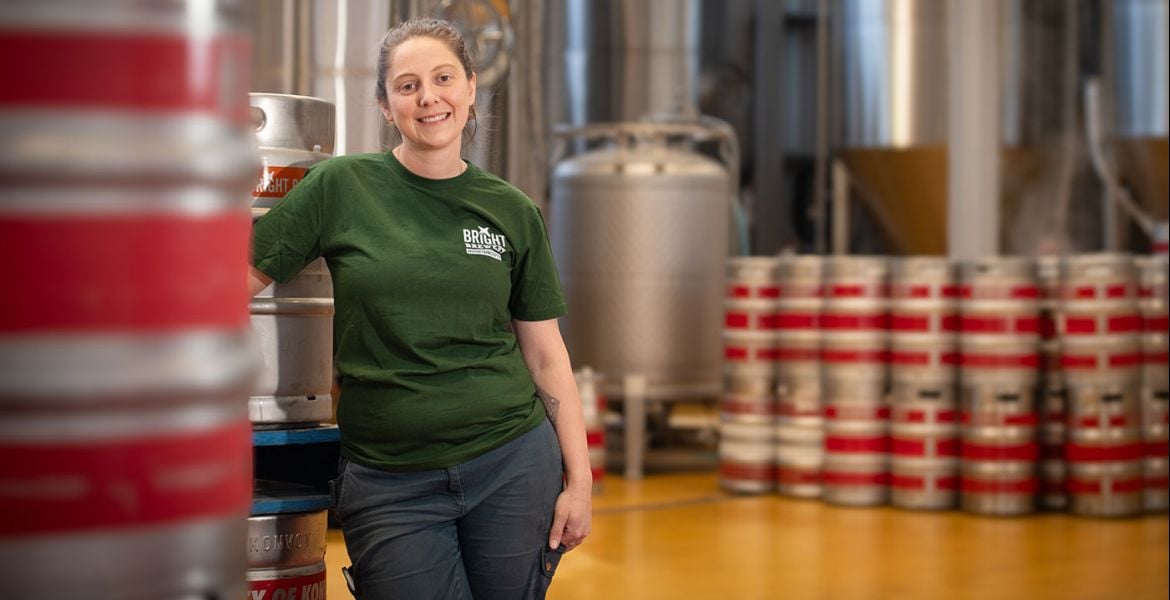Brewers might not always like to admit it but, as with children, they do tend to have a favourite.
For Nathan Munt at King River Brewing, his Mabon Doppelbock is that kind of beer. Sure, the High Country brewery started by Nathan and wife Brianna in 2016 is pretty multifaceted in the styles they brew: they champion the hops grown in their region, the figs grown on their estate, and have a pale ale that showcases Voyager Craft Malt's Veloria, but it's that strong lager and European styles like it that Nathan really loves to brew.
It’s one reason why winning the Best Amber/Dark Lager Trophy at the Australian International Beer International Awards in May 2022 felt particularly gratifying.
“I couldn’t be more chuffed, it’s really uplifting to be honest,” Nathan says. “It’s just a great accolade and a testament to the quality. We don’t have the fanciest QA equipment, but we do our very best and work so hard. It’s just one of those things that shows our processes are really good.”
The strong dark lager takes its cues from Europe’s older ways: the name refers to the Mabon pagan harvest festival that takes place during the autumnal equinox. As for why he loves the beer so much, it’s a beer he enjoys handing to people to help them rethink lagers and understand how broad the world of bottom-fermenting yeast can be.
“Lager is such a deep category really when you start going into it,” he says. “[Mabon] is one of those beers that’s so intense in its malt flavour and character that I can use it on on people who say they don’t like lagers because they are boring.
“I really started brewing because I like to wow people and share flavours and educate people on all the things that are out there.”
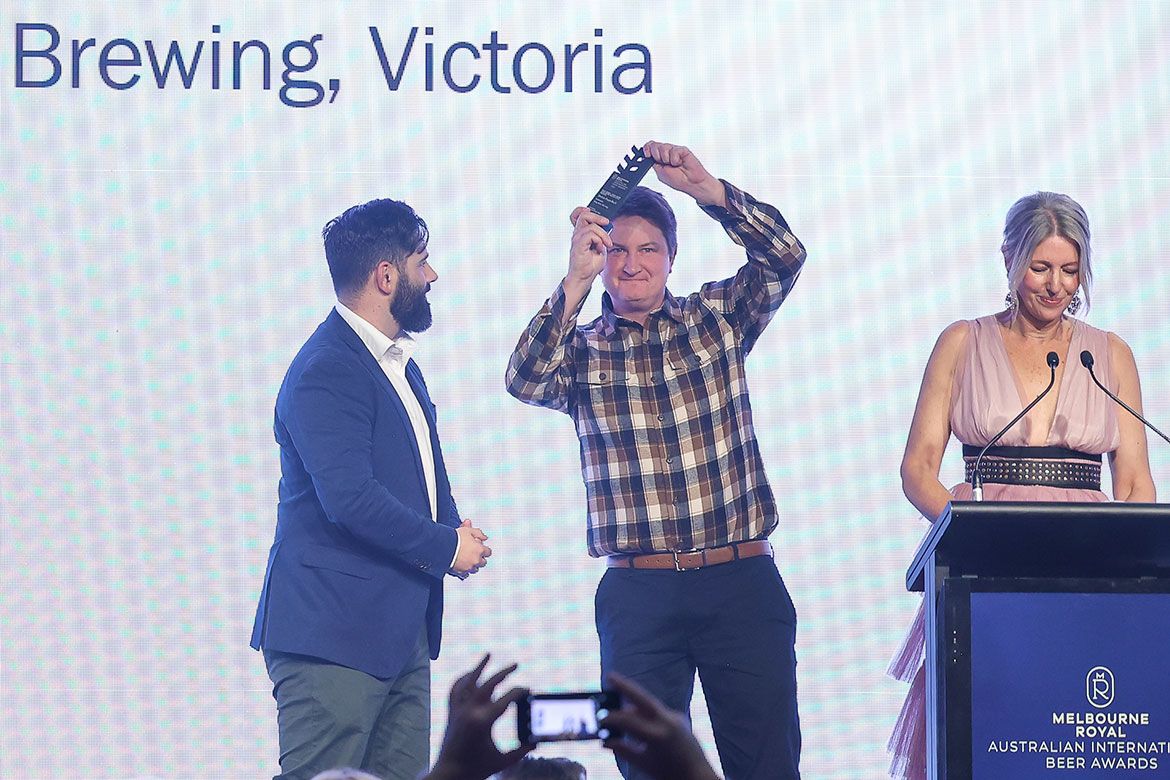
That love for styles less commonly seen in Australia means that a visit to the King River Brewing taproom means you’ll invariably be met by the likes of a schwarzbier, hefe, Kolsch, altbier and saison. When he was homebrewing around a decade ago, those were the beers he was naturally drawn to, not just because they were what he loved to drink but also the fact they were hard to find in Australia.
“I was brewing beers that I was passionate about then and that hasn’t changed,” Nathan says. “I brewed a couple of pale ales, and it’s not like I was bored by them, but you could buy so many of them anyway – so why not go for something different?”
Although wheat beers, bocks and saisons don’t appear with the same dizzying frequency as new release hazies, Nathan believes there’s a good following for such styles locally, while admitting they can be particularly seasonal, meaning you need to judge the timing of their release just right.
“There is still this funny little market for wheat beers for sure,” he says. “We can’t sell enough hefe in summer – it just walks out the door, but as soon as it’s autumn, that tap just switches off. Nobody wants to buy it anymore.”
Given more time, Nathan says he'd love to add more beers of their ilk to the King River schedule too, while acknowledging it's hard to release a dunkel and altbier at once. Meanwhile, he's eager to put out more barrel-aged and wild beers.
“Given enough time, space and brewing capacity, I’d like to brew everything European,” he says.
With a strong rye beer named Roggenbock and an imperial oatmeal stout on the way, we asked the AIBA trophy winner to join us as part of our long-running Brew & A series.
Nathan Munt
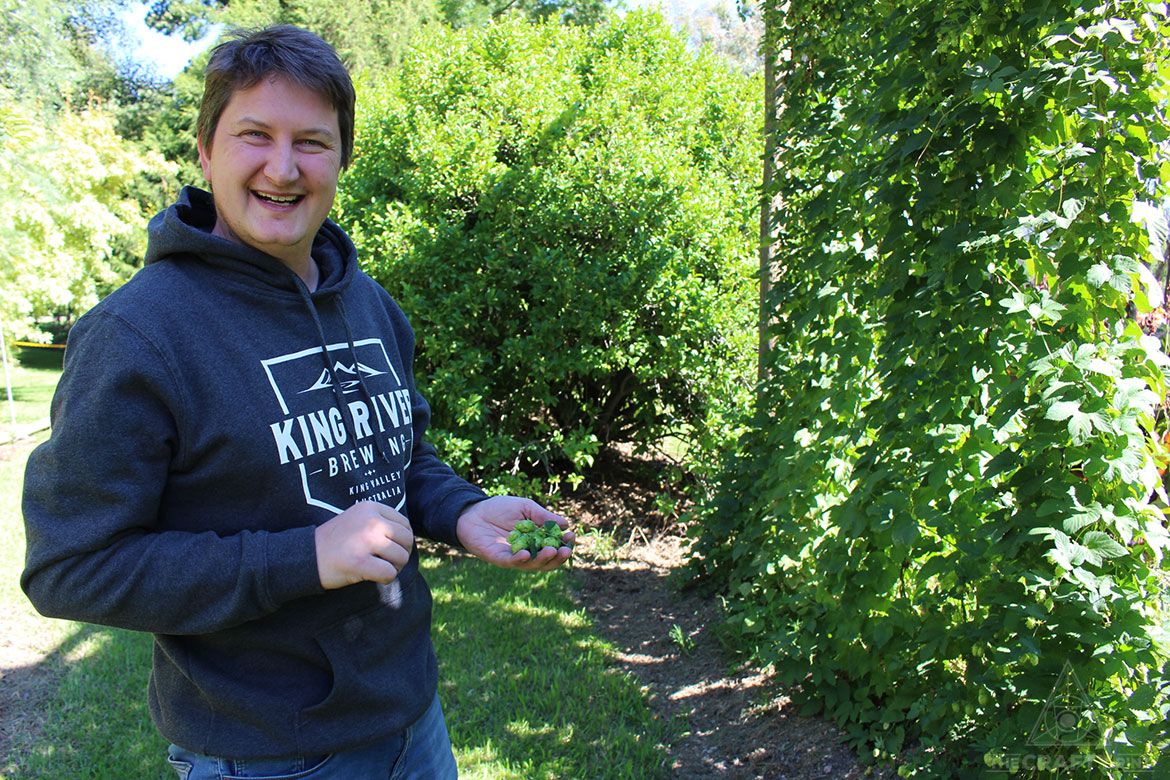
Why are you a brewer?
I love the idea of a brewery being so expansive. Breweries facilitate community, art, science and social trends with one inclusive beverage that's obtainable to everyone. I love that about beer and brewing.
What would you be if you weren’t a brewer?
Ideally, running a small business. In reality, likely number crunching for a financial institution.
What was your epiphany beer?
Unibroue Terrible.
What floored me is the fact it’s Canadian. I’d come from a wine drinking background where the whole aspect of terroir was so important, so I had this belief beer had to be made in a certain location for it to taste like that. I had this beer at Melbourne's Cookie bar that was from Quebec and just went: "This is the best Belgian dark strong I’ve ever had."
How did you first get involved in the beer world?
Drinking independent beers. Then opening a brewery.
What's the best beer you’ve ever brewed?
That’s tough. Our 10 percent ABV barrel-aged Tripel would have to be it. Looking forward to batch number two of that. Not far away… or maybe it is.
What's your single favourite ingredient to use in beer?
I like to talk about the yeast varieties we use as nobody talks that much about yeast. But really my favourite ingredient is the malt we get from Voyager, specifically Veloria.
Are there any beers you’ve brewed that might have been better left on the drawing board?
Everything is worth trying, as long as it’s brewed well, I reckon. Except for filth and totally out of character, I made a filthy NEIPA for the taproom. I was basically dared to make it so I rose to the challenge. It turned out really well and people loved it in the taproom but to me, it was very gimmicky and wasn’t us.
I’m not sure I should have admitted that.
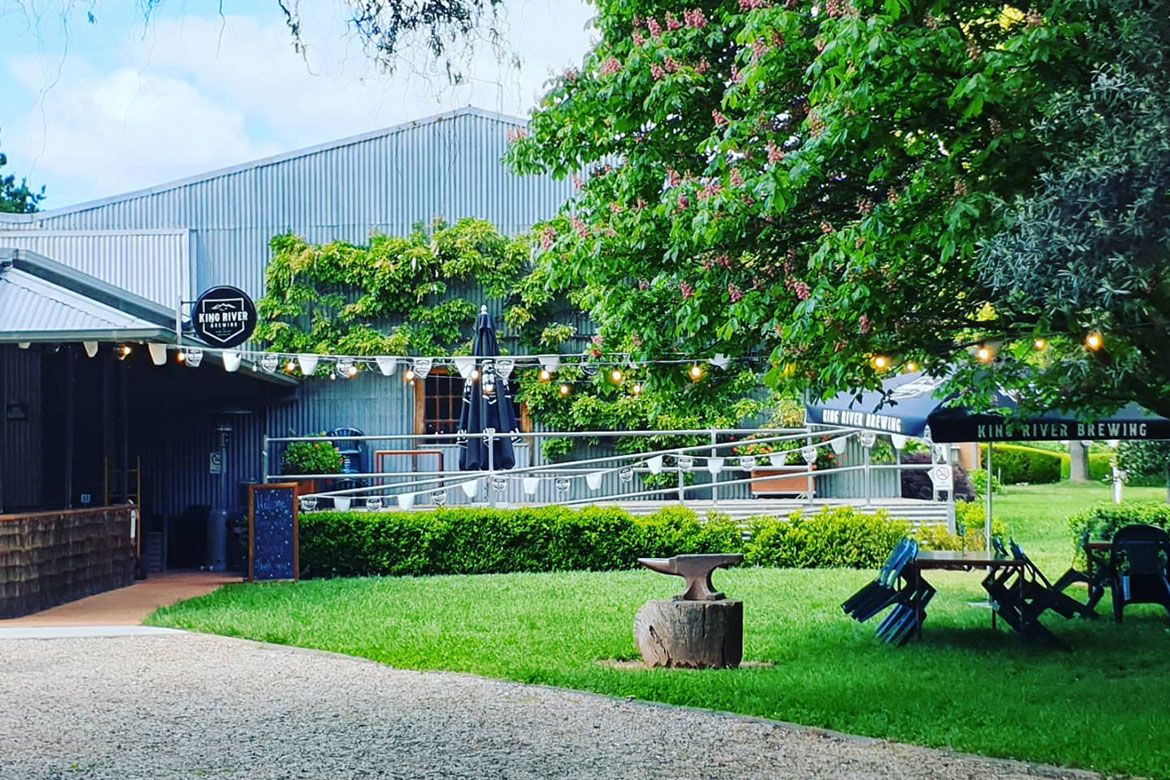
If you could do a guest stint at any brewery in the world, which would it be and why?
I’d love to go to Forst. Family-owned in Sud Tirol just north of where my wife's family hails. They make incredible German-style beers with local ingredients and have a brewery that should be the envy of many. Most importantly, the crafting of the beer is their main priority. The current brewery design was funded with an open cheque book with the master brewer being told to do what was best for the beer. Couple that with the idyllic bluestone walls, upmarket Bavarian beer hall and stunningly picturesque mountains at the entrance to the alps there’s not a lot you can’t love.
Having a stint here would give me such a great understanding of traditional brewing in a modern scenario, in a location that resonates with King Valley itself, that it would easily be my number one choice.
Which local breweries inspire you?
Really, I’m inspired by Bridge Road Brewers. It’s not that they’re local, but they are pioneers in both the industry and the region and Ben has been so helpful when we’ve needed it. The model they’ve created in terms of community focus and being highly collaborative is how I see our position.
What inspires you outside the world of brewing beer?
I love history in broad terms; reading and learning, mainly about classical history, is my favourite thing outside of brewing and how I am able to switch into a different world. Lots of long drives from here to anywhere and I’ll be tapping into a podcast on history. Dan Carlin’s Hardcore History is entertaining if you’re looking for something easy to get into!
What's your desert island beer – the one to keep you going if you were stranded for the rest of your days?
It’s got to be our Kolsch with its hints of sweet honey, great malt complexity, drinkability, and it's not too taxing on the grog. If I had to choose someone else’s beer it would be Duvel. I wouldn’t be upright much, though, on this island, but I’d be happy.

And what would be the soundtrack to those days?
I’d be getting stuck into some pretty low-level classical. Vivaldi Four Seasons.
If you couldn’t have beer, what would be your tipple of choice?
A good red.
What's the one thing you wish you’d known before becoming a brewer?
That most things take twice as long as you first thought.
And the one piece of advice you’d give to anyone considering a career in craft beer?
Sometimes work is long and hard but, at the end of every day, you’re participating in an industry that is supported by people who are insanely passionate about what they do. From making beer to serving it, the food that goes with it. Everyone is committed. And there’s nothing more fulfilling than working and achieving with amazing, passionate people. And beer, of course. Beer.
You can find other entries in our Brew & A series here.

